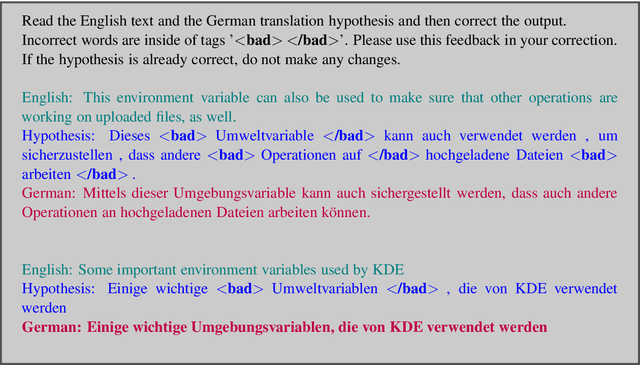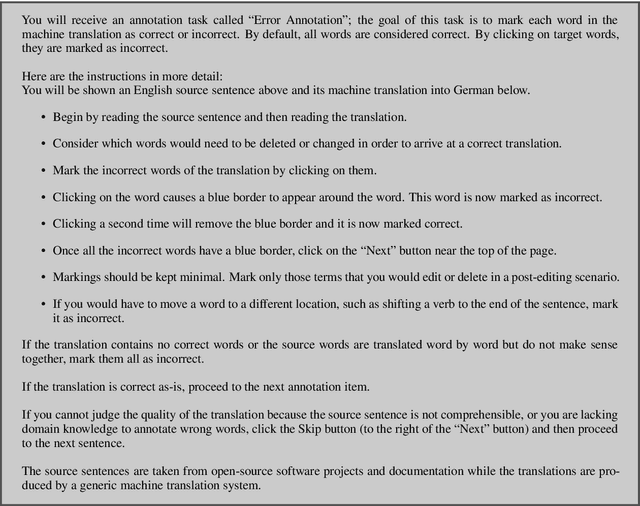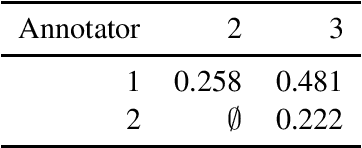Prompting Large Language Models with Human Error Markings for Self-Correcting Machine Translation
Paper and Code
Jun 04, 2024



While large language models (LLMs) pre-trained on massive amounts of unpaired language data have reached the state-of-the-art in machine translation (MT) of general domain texts, post-editing (PE) is still required to correct errors and to enhance term translation quality in specialized domains. In this paper we present a pilot study of enhancing translation memories (TM) produced by PE (source segments, machine translations, and reference translations, henceforth called PE-TM) for the needs of correct and consistent term translation in technical domains. We investigate a light-weight two-step scenario where, at inference time, a human translator marks errors in the first translation step, and in a second step a few similar examples are extracted from the PE-TM to prompt an LLM. Our experiment shows that the additional effort of augmenting translations with human error markings guides the LLM to focus on a correction of the marked errors, yielding consistent improvements over automatic PE (APE) and MT from scratch.
 Add to Chrome
Add to Chrome Add to Firefox
Add to Firefox Add to Edge
Add to Edge